Application Tips from the Admissions Team
Application advice from the people who actually review your application: members of the Yale SOM Admissions Committee.
As the 2022-23 application season kicks off, you’ll likely be inundated with advice from all directions about how to prepare your MBA application—what to do, what not to do, and how to think about the process. We thought you might want to hear from the people actually reviewing your application—members of the Yale SOM Admissions Committee—so we’ve gathered some advice below about various aspects of the application. Good luck, and be sure to take advantage of our other application resources, including our Application Guide; “Inside the Application, Literally” recording; and upcoming application workshops and Admissions Q&As.
—Bruce DelMonico, Assistant Dean for Admissions
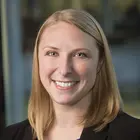
Use the application prompts to tell your story. In the Work Experience section of the application, there’s space to indicate your reason for leaving each role you’ve had to date. While it may be tempting to leave it blank or simply write “received another offer,” I’d recommend using that space more wisely. This is your opportunity to connect the dots for the Committee and walk us through your résumé as you would in an interview to help us understand the transitions you’ve made in your career so far. A sentence or two can make a world of difference in helping the Committee better understand your path.
—Amy Voth
Senior Associate Director of Admissions

Have fun with the video questions. Can I say that? Really, this is an opportunity to expand on how you’ll engage within the community. There will not be time to say everything exactly as you want. So be core, be present, and, as it is said, “Don’t let perfect be the enemy of good.”
—Jared Liu
Senior Associate Director of Admissions
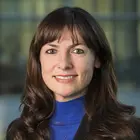
Think outside the box when it comes to recommenders. We understand that it might be a tad more challenging for some candidates to think of the best recommenders to approach. Entrepreneurs, freelancers, and those who have exclusively worked for the family business oftentimes struggle to identify recommenders and wonder how the committee will view their choice. You have plenty of options! Business or government partners, investors, clients, vendors, and mentors can all serve as recommenders. If you have dedicated a significant amount of time to an entity or organization in your community where you volunteer, you can ask them for a recommendation as well. The Committee is looking for insight into the work you’ve done through the experience of those who’ve worked with you. So, make sure to approach people who got to know you well and with whom you forged strong relationships.
—Maria Derlipanska
Senior Associate Director of Admissions

Before you hit submit, proofread. We get that applying to MBA programs is an arduous process. But before you hit submit, remember one important thing: proofread. Make sure your résumé is free of typos (yes, we have had candidates spell their name incorrectly). Make sure you remove any references to other MBA programs in your essays and short answers. Go back through your application and give everything another look. When my partner applied for graduate programs, I read each word of his essay backward to check for typos. I’m not advocating for that level of detail, but this is something you have been working toward for a long time. Be sure to put forth your best application.
—Kate Botelho
Senior Associate Director of Admissions
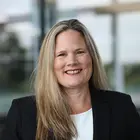
While it’s optional, the optional statement can help connect the dots. The Admissions Committee is looking for the clearest timeline and understanding of your educational and professional background. Where there are major transitions (changes in your academic major, university transfers, significant shifts in your employment history or career path) or gaps in employment or education, please provide some additional context in your application. The optional essay is available for this purpose if you are not able to explain elsewhere.
—Amber Walsh
Senior Associate Director of Admissions

Bring your full self. Approach each component of the application as an opportunity and, where it makes sense to do so, shed new light on a different aspect of who you are. As you connect with current students, campus groups, and alums, make sure to dig deeper into those conversations to learn about the SOM community from a vantage point that an Admissions Officer could not necessarily provide. Take that information and share freely as you are comfortable. Show us what you hope to gain from and contribute to the SOM community throughout your application.
—Michael Myers
Associate Director of Admissions, Inclusion and Diversity
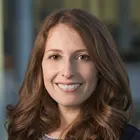
Spend your time answering the questions we ask—not the ones we don’t. Our essay prompt is very specific, and you’ll note that it doesn’t ask you, “Why do you want to come to Yale SOM?” So don’t make it about that! If your commitment has some relationship to what you want to do at SOM and beyond, that’s fine. But it doesn’t have to. We read many great essays about commitments that have nothing to do with your business school plans. Five hundred words is a modest amount of space to communicate how you have approached your commitment, so don’t make the mistake of using that precious real estate to answer a question we haven’t asked.
—Laurel Grodman
Assistant Dean for Admissions
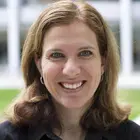
Don’t forget about the interview! If you’re invited to interview, remember that they mostly confirm the information we already have about you—don’t stress too much. That being said, remember that the “when, who, what, and how” of the actual MBA interview varies across programs. If you’re applying to several MBA programs, keep track of all of this information on a spreadsheet. Who does the interviews? At Yale, it’s a second-year leadership opportunity for our students who have only seen your résumé. When interviews occur, how they’re done and who does them can be very different.
—Rebekah Melville
Managing Director of Financial Aid



